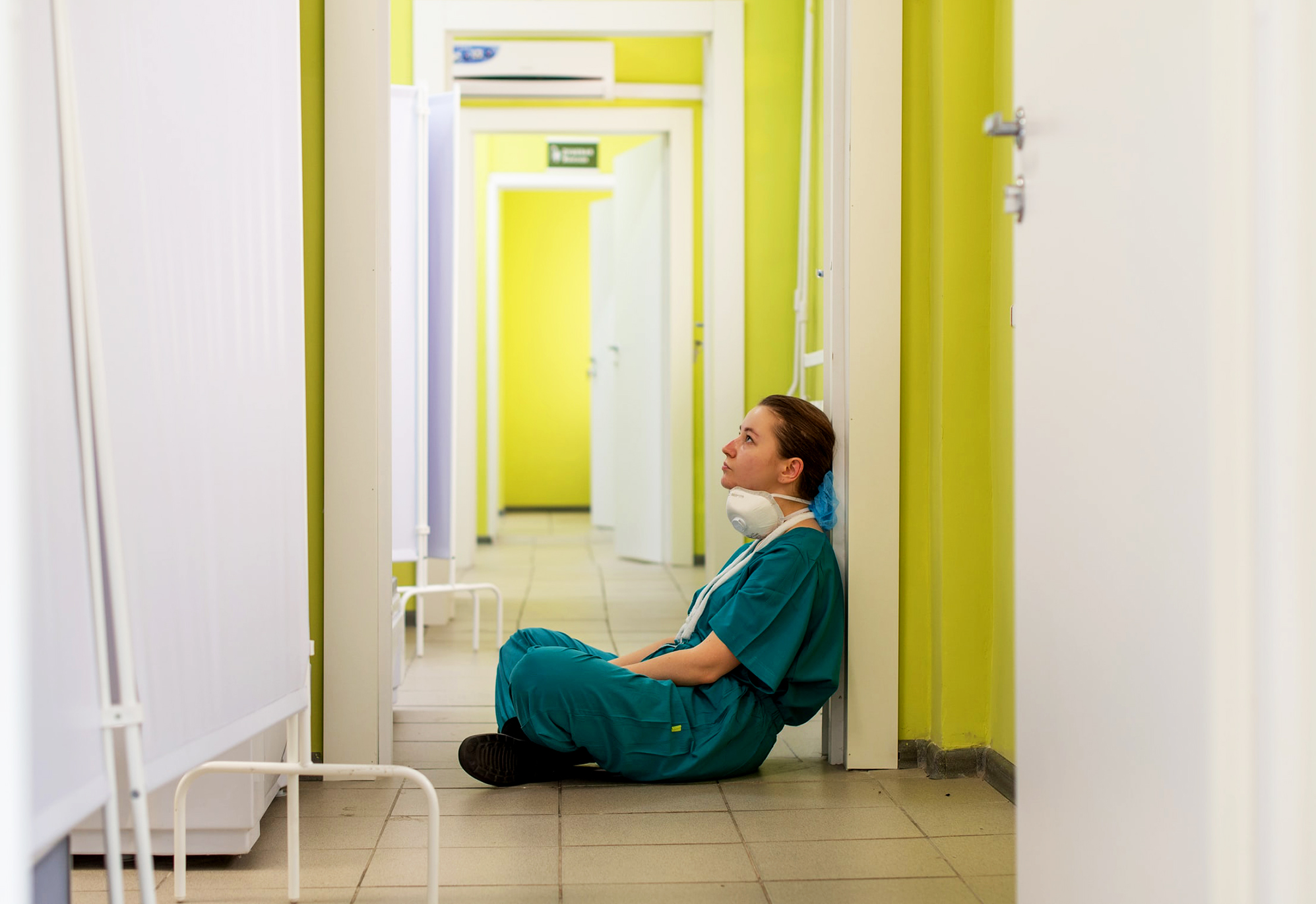Healthcare workers are being injured in the pandemic—
every time they are denied something or someone that they need to succeed—
every time they are told they are essential but are treated like they are disposable—
every time they are faced with a difficult decision, and that decision is made for them.
Yes, healthcare workers are being injured in the pandemic, but not in the way the public might think. The injury healthcare workers are suffering is moral injury, and it’s not going away any time soon.
Healthcare moral injury and COVID-19
Moral injury in healthcare refers to learning of, witnessing, participating in, failing to prevent, or perpetuating acts that go against a healthcare worker’s profound desire and duty to heal. According to Drs. Wendy Dean and Simon G. Talbot, pioneers of the concept of moral injury in healthcare, the COVID-19 pandemic is fanning the flames of healthcare moral injury.
Dr. Dean explains how in a piece she contributed to the Annals of Emergency Medicine. “Large corporate medical groups bought small physician-run practices and then budgeted to the bone so that staffing, space, and supplies became tighter and tighter…Unfortunately, these ‘lean business principles’ before COVID-19, suddenly became life-threatening, without enough personal protective equipment or staff and equipment to care for our patients.”
Trainees share their experiences and hopes for the future
Raina Decina, R.N., B.S.N., and current D.N.P. student at Grand Canyon University, shares her experiences with healthcare moral injury before and during the COVID-19 pandemic. “I have been a medical-surgical floor nurse for 16 years. As nurses, we are regularly faced with increasingly sick patients, staffing shortages, and the all-too-familiar nurse burnout.”
“But, in describing my source of moral injury during these times, it would be watching those patients who are seriously ill, scared, and isolated, missing the presence of their loved ones [and me being unable to do anything about it]. We are rushing in and out of patients’ rooms, completing tasks as quickly as possible, unable to provide our patients with the comfort of a few extra minutes to talk, to listen, or to sit quietly with them—all those things that nursing means to me.”
Across healthcare disciplines, trainees like Raina are being asked, “So, what’s it like to be beginning your career in this pandemic?” Sindhu Pandurangi, M.D., a second-year pediatric gastroenterology fellow at Cincinnati Children’s Hospital, takes this opportunity to respond by making a call to action.
“The politicization of this public health crisis has wounded all healthcare workers and will leave lasting scars. I hope that as trainees during this pandemic, we can work towards creating more supportive systems for healthcare workers in the future.”
Healing healthcare moral injury with a united front
No one expects healthcare moral injury to heal overnight. But, as Dr. Dean explains, a paradigm shift in healthcare leadership is a good place to start. “If we want to find solutions to the drivers of moral injury, we need to cross departments and tear down clinical silos…”
Her suggestions to healthcare trainees: learn the system, lead the system, and raise your voice for change. Raina Decina feels inspired by the call as she pursues her D.N.P. degree. “Being an N.P. student during this pandemic, I’m learning more about health policy, leadership, and how nurses can have a louder voice in healthcare. I’m feeling more empowered to push for better working conditions to better serve our patients.”
How have you experienced healthcare moral injury? Share your experiences in the comments below!

